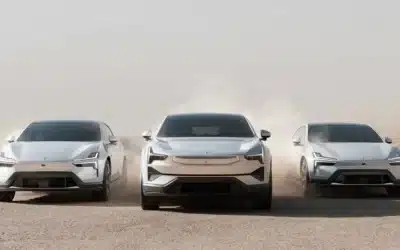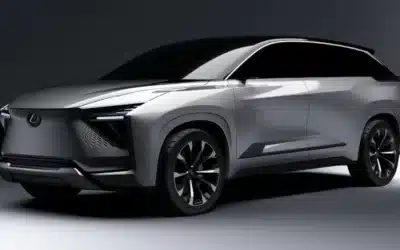
Electric cars are becoming much more popular in the UAE. Not long ago, spotting one on the country’s roads was rare. However, there has been a boom in sales and interest among drivers.
What is driving the rise in demand?
The rise in demand is being driven by several factors. At the governmental level, the UAE plans to become carbon-neutral in less than 30 years, and electric vehicles play a significant role in achieving this goal. The UAE’s Energy Vision 2050 initiative and Net Zero 2050 Charter have measures to increase the adoption of EVs in the country. The public generally supports reducing their reliance on fossil fuels and switching to other more environmentally-friendly options.
With the government’s commitment to reducing carbon emissions and the growing popularity of EVs, more charging points and other supportive infrastructure will be available in the coming years. This is helping to convince people to make the switch. The Dubai Electricity and Water Authority alone aims to have 1,000 public charging stations in the Emirate by 2025, a significant increase from the 620 charging stations available at the end of 2022.
At an individual level, drivers have noticed the unpredictable fuel prices over the last few years, with pump prices being very high at the end of 2022. This has led to a doubling of interest in electric cars, according to dealers.
How popular will EVs become?
According to market analysis by Statista, the EV market in the UAE is expected to gain significant momentum in the next four years, with a near threefold increase in the number of electric vehicles sold annually. They predict annual UAE sales of more than 15,000 EVs in 2027, up from just 2,000 in 2020.
The country has set an even more ambitious target of having 42,000 EVs on its roads by 2030. This move towards a green economy was highlighted by Mohamed Al Shorafa, the chairman of the Abu Dhabi Department of Economic Development, during Abu Dhabi Finance Week in November.
He urged other economies to follow the UAE’s lead and embrace the green economy as the logical solution for the 21st century.
Who’s buying electric cars?
The UAE government is a significant buyer, with plans to convert a fifth of its government agency cars to electric vehicles.
Young professionals, who are often early adopters of new technologies, are also buying EVs, attracted to the environmental and financial benefits.
Families find EVs an attractive option as they provide a more affordable and convenient way to transport children or other family members.
Business owners and fleets are also contributing to the uptake because of the fuel cost savings and positive environmental impact. Although the predicted sales in the UAE are still minuscule in comparison with China, Europe, and the US, they represent very positive momentum.
According to Google search data, people living in Dubai are the most interested in EVs in the UAE, followed closely by people living in Umm Al Quwain and Ras Al Khaimah.
Research by consulting firm Arthur D. Little in 2022 found that 30% of Emiratis would consider buying an electric car.
According to Goldman Sachs Research, EVs are expected to make up half of all new car sales worldwide by 2035, with the number of EVs sold projected to reach 73 million units by 2040, up from just 2 million in 2020.











